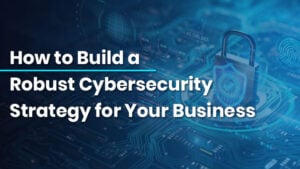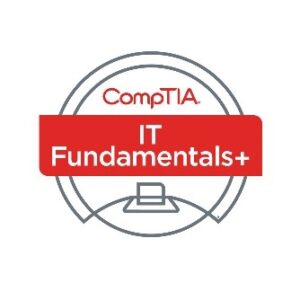
Google Workspace vs. Microsoft 365: Which is Better for Your Team?
Google Workspace vs. Microsoft 365: Which is Better for Your Team? Introduction Choosing the right productivity suite is essential for any business aiming to
🔥 Limited Time Offer 🔥 Get the Premium Monthly Plan for just $11.99 $19.99. Use code UPSKILLNOW and unlock exclusive benefits 👉Subscribe Now!

Google Workspace vs. Microsoft 365: Which is Better for Your Team? Introduction Choosing the right productivity suite is essential for any business aiming to

How to Build a Robust Cybersecurity Strategy for Your Business Introduction In the modern digital landscape, cybersecurity is no longer just an IT concern,

What Does It Mean to Humanize Healthcare AI? Introduction The emergence of Artificial Intelligence (AI) in medicine is revolutionizing the sector at an unprecedented
Table of Contents
Embarking on a journey into the field of Information Technology (IT) is an exciting endeavor filled with opportunities for growth and learning. For individuals looking to establish a solid foundation in IT, obtaining the CompTIA IT Fundamentals (ITF+) certification is an excellent starting point. This entry-level certification validates essential IT knowledge and skills, making it ideal for beginners and those exploring IT career paths. In this blog, we’ll explore actionable steps and strategies to help you effectively prepare for the CompTIA ITF+ exam and kickstart your IT career journey.
Dive deeper into the world of cloud technology and IT mastery with IPSpecialist! Get the best course by accessing comprehensive IT certification training and resources. From beginner-level IT courses to mastering Cloud Computing, Cybersecurity, DevOps, Microsoft, Networking, and more, IPSpecialist offers diverse courses, study guides, and practice exams tailored to amplify your skills.
 The CompTIA IT Fundamentals (ITF+) certification provides a comprehensive introduction to essential IT concepts and skills, making it an ideal starting point for individuals with little or no experience in the field. This course covers various topics and ensures candidates grasp fundamental computer components, operating systems, networking basics, and storage devices. Furthermore, it delves into software installation, configuration, and troubleshooting, providing a solid foundation in application software and standard operating systems. With a focus on practical knowledge, the certification equips learners with the skills needed to navigate the IT landscape effectively, making it an excellent choice for those aspiring to begin a career in IT or enhance their understanding of core IT principles.
The CompTIA IT Fundamentals (ITF+) certification provides a comprehensive introduction to essential IT concepts and skills, making it an ideal starting point for individuals with little or no experience in the field. This course covers various topics and ensures candidates grasp fundamental computer components, operating systems, networking basics, and storage devices. Furthermore, it delves into software installation, configuration, and troubleshooting, providing a solid foundation in application software and standard operating systems. With a focus on practical knowledge, the certification equips learners with the skills needed to navigate the IT landscape effectively, making it an excellent choice for those aspiring to begin a career in IT or enhance their understanding of core IT principles.
The CompTIA IT Fundamentals+ (ITF+) certification boasts a range of benefits that can empower your journey in the exciting world of IT:
Overall, the CompTIA IT Fundamentals+ exam is designed to assess your ability to:
CompTIA IT Fundamentals (ITF+) certification exam is tailored for beginners in information technology, encompassing students, non-IT professionals, or those contemplating a career shift to IT. The certification offers a foundational understanding of essential IT skills, making it an ideal starting point for individuals aiming to establish a solid grasp of IT concepts before progressing to more advanced certifications or roles in the technology industry. This course offered by IPSpecialist provides an intensive yet comprehensive guide to mastering the fundamentals of IT so that any reader can become a well-rounded IT Certified.
Enroll in this Course Today: https://ipspecialist.net/courses/fco-u61-comptia-it-fundamentals-itf/
Embarking on the Information Technology journey requires a strategic approach. Here are the essential steps to guide you through the preparation process:
If you are preparing for the CompTIA IT Fundamentals (ITF+) certification, download the exam blueprint for a complete exam overview. You’ll understand the certification goals, prerequisites, and domains. Take note of the additional resources you’ll need to improve your preparation.
CompTIA ITF+ study guide offered by IPSpecialist can help you navigate the syllabus and determine which topics to study first and last. This guide covers each database concept and technique in detail.
The CompTIA IT Fundamentals (ITF+) course typically has no prerequisites for enrollment. However, to be successful in the course and potentially pursue the certification.
For CompTIA IT Fundamentals (ITF+) course exam preparation, dive into CompTIA official documentation. It is a crucial supplement offering deep insights, real-world examples, and best practices for IT concepts. This source provides comprehensive perspectives accurate and up-to-date information directly from the technology creators, reinforcing your expertise for the exam.
The Official IT Fundamentals (ITF+) detailed study material offered by CompTIA: https://www.comptia.org/certifications/it-fundamentals
IPSpecialist provides online training courses through www.ipspecialist.net. These courses cover the exam objectives and often include interactive labs.
Here are a few examples of concepts that are critical for IT Fundamentals exams:
IPSpecialist offers sample practice questions on CompTIA IT Fundamentals (ITF+) exam topics. Taking practice exams under timed conditions helps you get accustomed to the format and improves your time management skills.
Subscribe to IPSpecialist newsletters, blogs, and social media channels to stay informed about product updates and new features. Understanding the latest advancements ensures that your knowledge aligns with the most current technologies.
Taking a certification exam can be challenging. Many people find it stressful, especially CompTIA exams, which require much time and preparation.
Preparing for the CompTIA IT Fundamentals (ITF+) certification exam requires dedication, focus, and the right resources. You can increase your chances of success by following a structured approach outlined in this roadmap, including reviewing exam objectives, utilizing study guides and practice resources, considering instructor-led training, and conducting self-evaluation. Additionally, adhering to tips and tricks, avoiding brain dumps, understanding your learning style, and joining online communities can further enhance your preparation experience. Achieving ITF+ certification offers numerous benefits, including a solid foundation in IT concepts, career advancement opportunities, increased earning potential, and enhanced credibility in the job market. With proper preparation and determination, you can embark on a rewarding journey in the dynamic field of information technology.
The CompTIA IT Fundamentals (ITF+) certification is an entry-level credential designed for individuals who are new to the field of information technology (IT) or have minimal experience in IT roles. It covers essential IT skills and knowledge, including computer hardware, software, networking, security, and basic troubleshooting.
The ITF+ certification is ideal for individuals interested in starting a career in IT or wanting to validate their foundational IT knowledge. It is suitable for students, job seekers, career changers, and anyone looking to understand IT concepts and skills.
Preparation time can vary depending on your prior knowledge and study habits. On average, dedicating 4 to 6 weeks of consistent study and practice can be sufficient for most candidates. However, some individuals may require more or less time based on their learning pace and familiarity with IT concepts.
No, there are no specific prerequisites for the CompTIA IT Fundamentals (ITF+) exam. It is designed to be an entry-level certification for individuals with little or no prior experience in IT. However, having a basic understanding of computer usage and terminology can be beneficial.
© 2025 All rights reserved | Privacy Policy | Terms and Conditions | Sitemap | Cookie Policy




